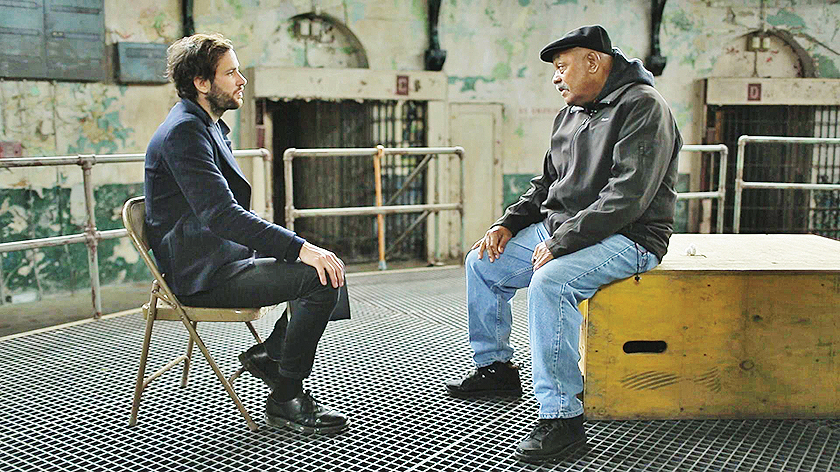Foreign journalists who work on tourist visa in India not only break the law but also get less than the wages back home
Despite being accredited journalists, two French nationals were arrested in Kanyakumari when they were allegedly trying to trespass into restricted area belonging to the Indian Rare Earths Limited (IREL) at Manavalakurichy.
The problem lay in the nature of their visas. Jules Giraudat, Deputy Editor of the Freedom Voices Network Team and an accredited member of the CCIJP (Commission de la Carte d’Identité des Journalistes Professionnels) and Arthur Bouvart, an investigative journalist who is part of the Freedom Voices Network Team — were travelling to India on a tourist visa to work on a story.

They have been charged with several crimes that include using forged passports, criminal trespass and many others of a serious nature. The two Indian journalists assisting them — D Anandhakumar and M Sriram — who are both from Chennai, have also been arrested.
As per the FIR registered on the basis of a complaint received by Rajesh Raman Nair, Chief Manager (Security) of IREL, on the morning of November 26 the two French journalists, along with parish priest Father Kildoss met an official at the IREL. The priest, along with the two foreign nationals, “were involved in videography in beach mining areas and also had interviewed a few of the fishermen folk in Chinnavilai which comes under Govt Property and photography/videography is prohibited (sic).”
It’s pertinent to mention that IREL is the central government’s beach sand mining agency and comes under the purview of the Department of Atomic Energy and the premises, therefore, is a restricted area.
Alliance for Media Freedom (AFMF) condemned the “illegal detention and harassment of two Tamil Nadu journalists” by the Kanyakumari police on November 28-29 November, accusing them of peddling a ‘false narrative’ to justify their move.
In a press release, AFMF clarifies: Neither Anand nor Sriram was aware that the French journalists intended to visit IREL or that they had entered the premises, nor did they have any part in the alleged photography/videography in the surrounding “Government property” mentioned in the complaint.
Press freedom is sacrosanct, and should be protected at all costs, but what also needs to be answered is what were the two senior foreign journalists doing at a sensitive location on a tourist visa?
In fact, it’s not an aberration but standard practice. Not just French journalists, some freelancers from other European countries as well report from India, while residing on a tourist visa. As far as the French are concerned, there are two wire agencies operating from Delhi — one of them operates from the residential area of Lajpat Nagar – that employ dozens of people. Some of them are young French journalists fresh out of college — in the age group 21-29 years — as interns. They have a penchant for adventure and are impressionist, opinionated, yet informed that partial information can be dangerous.
These interns are here on tourist visa, and stay for three to six months. Initially, they are assigned to do research work, fish for story ideas, book accommodation and tickets, liaison with local journalists, do the spade work, line up appointments and assist seniors. After a couple of months of stay, they are allowed to accompany seniors, and then do some simpler stories independently. Those who do well are offered an extension, again on a tourist visa.

They get paid 600 to 1,000 euros per month, much less than the minimum wage prescribed in France. In this fashion, they are not only violating Indian laws, but are also not adhering to the minimum wage requirement in France, which is about 1,500 euro.
This is a debate about ways and means. An intern from France, Marina (name changed) is 24 years, and was in Delhi for six months before she returned to France earlier this year. She had to deal with immense job pressure, she was putting in long hours, but there was hardly any satisfaction as she was reduced to a glorified travel agent. She was lining up appointments on phone with the help of local journalists, some of them fairly unscrupulous. In return for their services, local journalists surviving on paltry salaries get paid hefty amounts and are obliged to extend all possible help.
Some local journalists, in order to make easy money, extend help beyond their capacity — in desperation, they connect foreign journalist to fake people impersonating as victims of a crisis, or sometimes land them in trouble by not informing them the possible repercussions involved. This seems to be the case in Manavalakurichy.
Young journalists like Marina have no way of knowing whether they are interviewing the right people. Marina was actively involved in lining up shoots during the Rohingya crisis in North East, made a trip to south India, and was also involved in a story about Naxalism.
Earlier this year, the Ministry of External Affairs issued an “advisory” for foreign correspondents working in India, reminding them of a “dormant rule” that prohibits them from traveling to certain areas, including parts of Jammu and Kashmir, without government permission.
According to India’s Foreigners (Protected Areas) Order, 1958, the whole of Arunachal Pradesh, Manipur, Mizoram, Nagaland, Sikkim, and parts of Himachal Pradesh, Jammu & Kashmir, Rajasthan and Uttarakhand have been declared as “protected areas”. The government wants the foreign correspondents to provide “advance information, in requisite format” to the ministry before their visit since that will help it in “facilitating/arranging special permit from relevant agencies, where it is required”.
This writer has come across many such young French journalists in India, some fairly senior, operating on tourist visa, concealing their true intension to work. It has to be said that their heart is in the right place but they have a very simplistic idea of things and a liberal world view.
They are hard-working professionals who do some great field reportage, highlighting the fragmented, feudalistic, patriarchal mindset that continues to prevail in India. They have a great deal of access to the educated elite of India. Their sources are journalists, academics, authors and the kind of intelligentsia that the establishment relishes in describing as ‘urban naxals.’
The tourist visa is an easy ploy to avoid the wrath of the government, as many of the issues dealt with by these ‘freelance’ journalists on a tourist visa are contentious — like the ban on cow slaughter, or persecution of minorities and gender parity to name a few.
Marina’s photographer colleague, 27-year-old Julian, was also disenchanted. They’d often discuss the illegality of their existence in this country, but pragmatism would prevail over their prick of conscience. They all are aware that this is not the right way to go about business. However, they’d justify it by saying, “anything is possible in India. Breaking law sometimes is necessary for a greater good.” Julian agrees that he’d never operate in this manner in France, or anywhere else in Europe, or for that matter, in the US where he studied for a year.
A French video-journalist, who frequents the Foreign Correspondents Club in Delhi, has been living in India for many years now. He says, “News is business”. These production houses based in Delhi get paid in terms of per-minute of curated news content. They produce news features and documentaries, the duration varying from a couple of minutes to an hour and a half. “We employ state-of-art technology and do a thorough job,” he explains and adds, “Good content needs good investment.”
No individual or foreign agency has come out to own up that the two French journalists arrested were working on an assignment commissioned by them.
In this context, these interns and freelancers are handy. They are eager to learn and willing to put in long hours and travel to god-forsaken place in the pursuit of stories, and if ever they get caught, as was the case with these two journalists, they can easily be dissociated with by any local organisation. They end up being sitting ducks.





